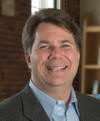… where 1+1+1 = 0
 Andy McMillan
Andy McMillan
Strategy Consultant
&
President
BACnet International
Contributing Editor
|
September 2014 |
[an error occurred while processing this directive] |
|
The New Math
in BAS
… where 1+1+1 = 0 |
|
| Articles |
| Interviews |
| Releases |
| New Products |
| Reviews |
| [an error occurred while processing this directive] |
| Editorial |
| Events |
| Sponsors |
| Site Search |
| Newsletters |
| [an error occurred while processing this directive] |
| Archives |
| Past Issues |
| Home |
| Editors |
| eDucation |
| [an error occurred while processing this directive] |
| Training |
| Links |
| Software |
| Subscribe |
| [an error occurred while processing this directive] |
Business success in
the building automation systems industry comes from
aligning with the fundamentals of how the industry works.
Fundamental characteristics of the current BAS industry include:
So, how well would a currently successful company do in a world where
we add a few things to the BAS industry equation? Let’s
start by looking at three things we can imagine adding.
+1 …Economic value trumps
energy savings
LEDs are very efficient light sources but they are much more than
that. Beyond being efficient they are also dynamic in that they
can readily provide intensity variation, color temperature variation
and even absolute color variation. As LED lighting marches down
the semiconductor cost curve we’ll find that taking advantage of LED
dynamics adds little to the cost of light sources. With that in
mind, we should expect companies with deep knowledge of light and how
it affects people to create “light recipes” designed to have specific
impact on behavior or task performance. Implementing such recipes
will deliver benefits like improved educational outcomes in schools,
increased sales in stores, shorter stays in hospitals and higher
productivity in offices. This will create an irresistible rush to
implement automation projects where the focus is enhancing the economic
value of buildings rather than just energy savings.
+1 …Lighting-centric
Automation Projects Become the Norm
Lighting will take center stage in automation projects for a couple of reason. First, automation projects motivated by the desire for dynamic lighting will lead to more and more projects being led by lighting focused suppliers rather than HVAC focused suppliers. Second, LED lighting developers are embedding sensors and networking capability directly into light sources. As systems are deployed with these light sources the center of gravity for information gathering will shift to lighting systems. Building automation is going to become a lighting-centric, information-rich industry.
+1 …Controls Programming Goes Away
Controls today are complex and require trained staff to implement
useful systems. That has been acceptable historically because the
pace of retrofitting buildings with controls has been limited by the
cycle of mechanical equipment replacement. With the rush to take
advantage of dynamic lighting the current cost and time of controls
programming will rapidly become unacceptable. So, a “no need for
programming” solution will evolve to fill the gap. And, in case
you’re tempted to think that controls are too complicated for that to
happen carefully consider the changes over the last 5-10 years in photo
editing and casual video sharing. Those used to be complicated,
too.
= 0 …A Wakeup Call for
Successful Companies
So, let’s stop and consider our new industry equation. Starting
from today we add three elements to the industry mix. Looking at
currently successful companies, how much will their current success
contribute to the odds of them remaining successful? I would
suggest the answer is near zero. After all, how many of them
could continue to operate in their current business models when energy
savings are not so important and most customers don’t need specialized
controls development or programming? How many of their controls
product lines will remain relevant when networking, in-space sensors
and “intelligence” are just part of off-the-shelf lighting?
Again, it seems to me the answer is near zero.
*QED
[an error occurred while processing this directive]
Of course, all of this is just an interesting speculation unless the
industry equation really does change. So we have to ask
ourselves, “How likely is it, really?” Before you try to
answer that question, I would encourage you to join me at the BACnet
International Annual Conference in October. Stop by at 8:00am
on
Tuesday October 7th for session T1.SS at NFMT in Las Vegas. The
session is titled “LED Lighting: An Automation Armageddon.”
We will discuss concrete proof points for each element of the new math
in building automation and we will explore the key question: “Just how
likely is it, really?”
*QED
- The urban dictionary: An abbreviation of the Latin phrase "quod
erat demonstrandum". It literally translates as "which was to be
demonstrated", and is a formal way of ending a mathematical, logical or
physical proof. Its purpose is to alert the reader that the immediately
previous statement, which naturally was arrived at by an unbroken chain
of logic, was the original statement that we were trying to prove.
As always, the views expressed in
this column are mine and do not
necessarily reflect the position of BACnet International, ASHRAE, or
any other organization. If you want to send comments to me
directly, feel free to email me at andysview@arborcoast.com.
[an error occurred while processing this directive]
[Click Banner To Learn More]
[Home Page] [The Automator] [About] [Subscribe ] [Contact Us]